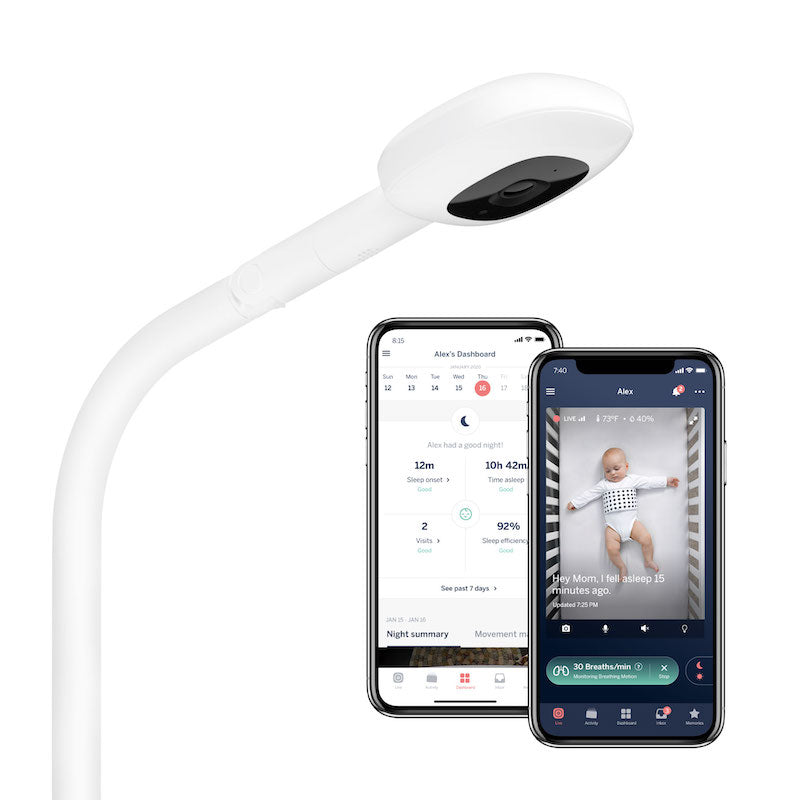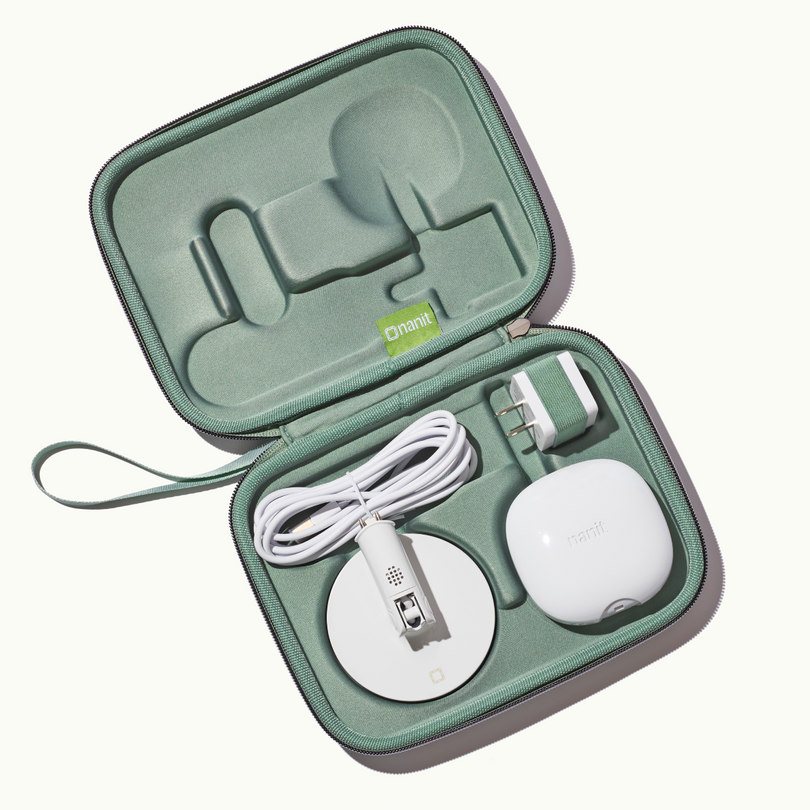9 Month Old Nap Schedule:
At this age, your baby will likely be fairly consistently taking two naps a day. Every baby will progress at their own pace, depending on their unique preferences and growing bodies, so if these naps are still somewhat elusive, hang in there! Around 9 months, they’ll probably be napping for 2-4 hours during the day, but once they start to get a bit older (between 11-14 months) you’ll notice a pretty significant shift in their napping patterns.
9 Month Old Feeding Schedule:
You probably started feeding your baby solid foods a few months ago — but if not, now is definitely the time to introduce some fun (and nutritional) foods! Some babies will want to devour everything you put in front of them, some will be a little picky about the different tastes and textures and some may still not have the hang of it just yet. It’s a learning process. Whichever category your baby falls into, your baby should now be attempting 3 meals a day at 9 months.
Nighttime feeds should be gone at this point. Most babies are capable of lasting through the night without food — what they need more than anything at this age, is a good night’s rest! Early on, your baby should still be taking about 4 milk breast milk or formula feeds a day. Between 12 and 14 months, you may wish to switch your baby to cow’s milk instead of formula or breast milk, though you’re welcome to keep breastfeeding.
How Long Should A 9 Month Old Sleep?
At 9 months, your baby will probably still be sleeping around the same amount of time overall as they were at 8 months. In the evenings, you can expect your little one to sleep for 11-12 hours.
As you begin to see an increase in your baby’s gross motor skills, social awareness, language awareness, etc. you’ll notice the importance of routine, dependable transitions and consistency. This helps your baby make sense of the world and take the sleep they need. Though they may not be able to consciously explain or even comprehend why they need to sleep, their mental and physical development is leading them in that direction. (Kinda cool right?)
There will probably be some milestones that your baby reaches during these ages, so get excited! Learning how to crawl or stand may be easy, thanks to their personal gym, aka crib. It is possible that these movements will cause a disruption in sleep, but don’t worry! You just need to be consistent when dealing with the aftermath. Beware, your baby may quickly realize that this is a game — if they stand up, and your response is to rush over and sit them down, they’ll know to continue doing that. Avoid this silly game by showing them how to sit down (instead of just picking them up) and giving them the time and space to figure it out on their own. Lots of practice with these kinds of moments during the day will make this no biggie.
9 Month Schedule
|
Wake and Milk Feed 6:30 AM |
The morning feed is usually the biggest feed of the day. Your little one should be able to sleep through the night without being fed at this age. If you are still feeding overnight and find that they are not hungry in the morning, that's a good sign to cut back on nighttime feeds. If you're breastfeeding, take an opportunity to pump off some of the extra milk you're probably storing from a long stretch of rest and not feeding overnight. |
|
Breakfast 7:30 AM |
Get creative here with a fun solid breakfast that your baby will love. You may still have to serve up mainly pureed foods, but this is a great time to experiment with eclectic flavors and textures. Maybe try mashing instead of pureeing foods, or offer avocado on toast fingers, toast fingers with butter, roasted cherry tomatoes, scrambled eggs, or whole wheat pancakes cooked with blueberries (great for developing young brains!). |
|
Nap time 8:30 - 9:30 AM |
Timing for this nap may change from day to day. Your baby may not be ready for a nap for another 15 to 30 minutes. Totally fine if that's the case, just make sure they're up within an hour, if they don't wake up on their own at the end of this hour. |
|
Milk Feed 10:30 AM |
If your baby is more comfortable with solid foods, try cutting back a bit on this feed. |
|
Lunch 12:00 PM |
Similar to breakfast, this solid lunch is a great time to start experimenting with flavors and textures. Encourage your baby to start self-feeding, even if it's just small pieces of food while the majority of their food is still fed to them! |
|
Nap time 12:30 PM - 2:30 PM |
Enjoy some time to yourself while your baby takes a nice long afternoon nap! |
|
Milk Feed 2:30 PM |
Your little one will be hungry for milk once they wake up from their nap! |
|
Dinner 5:00 PM |
Every meal is a new opportunity to introduce your baby to exciting new flavors and textures, especially since they've probably already eaten solid foods for every other meal of the day. Dinner should be no different! |
|
Bath 5:45 PM |
Splish-splash! It's time for a bath! |
|
Bottle and Book 6:15 PM |
Try to make sure that the feed isn't the absolute last thing the baby does before bed. Consider breaking up the feed and bedtime with a calming song or bedtime story, rather than falling asleep at the breast or the bottle. |
|
Bedtime 6:30 PM |
Time for bed. Sweet Dreams! |














